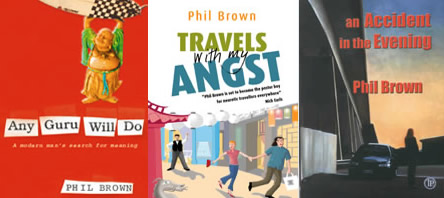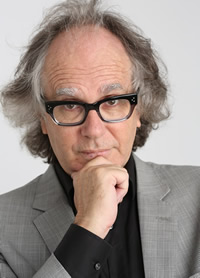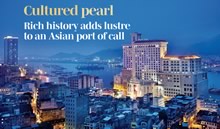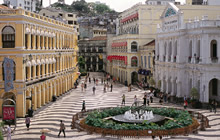Phil Brown - Travel Stories
Macau - Cultured pearl
Rich history adds lustre to an Asian port of call
Phil Brown reports
Visiting Macau without entering a casino would be unthinkable to some people but it can be done. If you want casinos they are there, with all the bling of Las Vegas in some cases.
Macau's Cotai strip is a big attraction, particularly for millions of mainland Chinese. Our guide in Macau, Joao Sales explained, "Chinese people see gambling as an investment". Go figure.
On our two-night flying visit - bookended by voyages from Hong Kong on high-speed jetfoils - we were as interested in the past as the present.
A treasure trove for history buffs, Macau was the first European foothold in China, established as a Portuguese trading port in 1557. On the Pearl River Delta, it's a tiny enclave that is a fascinating mixture of European and Chinese history and culture.
We stayed at the Sofitel Macau at Ponte 16 on the old inner harbour, a great location just a stroll away from the historic centre of Macau, a World Heritage-listed precinct since 2005. From our 16th-floor window we looked across the harbour to China and down on to the old city with the unmistakable skeletal remains of the old cathedral of Sao Paulo (St Paul) at the heart of it all.
On a guided historical walk, with Joao leading, we ventured along the waterfront where fishing vessels dock and fish dry nearby in the open air, traffic fumes and all.
We traversed narrow streets and alleys (one of which was a location in the 1984 film Indiana Jones and the Temple of Doom), visited a local Taoist shrine and a park where locals practise tai chi. Then we came upon the Old Protestant Cemetery, which I looked for on my last visit to Macau 20 years ago but never found. Having a guide can be very helpful.
Macau, a former Portuguese colony which returned to China in 1999, has been a gateway to China for other Europeans, Americans and Portuguese over the centuries. Many are buried in this cemetery which was originally established by the British East India Company. There are fascinating headstones and some names may be recognisable, such as that of Lord Henry John Spencer-Churchill, the brother of Sir Winston Churchill's great-grandfather.
In blistering heat - it was summer after all - we wandered on through streets coming to life in the late morning. The crowd thickened as we headed towards the ruins of Sao Paolo, one of Macau's premier tourist attractions. This former 17th century Jesuit church was destroyed by fire in 1835 and its impressive, towering facade is a symbol of the Portuguese past.
There's a small Museum of Sacred Art in what was once the crypt and an ossuary if you're interested in the bones of Christian martyrs, which our son certainly was. Overlooking the facade are the massive stone walls of the Monte Fort (built by the Jesuits between 1617 and 1626) and there's also the Macau Museum nearby.
Among the other local treasures is Largo do Senado Square which is the heart of old Macau. There are 25 major historical sites around here, including more churches, government buildings and Leal Senado, an impressive example of Portuguese architecture and home to a historic library. This area is a lively precinct, popular with tourists and locals, with shops, restaurants and cafes where Portuguese pastries are a must. From the Sofitel you just wander up the Avenue Almeida Ribeiro and you're there, a 10-minute stroll into one of the most fascinating historical precincts in the world. Macau may have reverted to Chinese rule in 1999, but like Hong Kong it retains a fascinating cultural fusion.
There is much more to discover such as the islands of Taipa and Coloane. Coloane Village is a surprisingly sleepy little settlement with historical buildings and some great restaurants including Antonio's, Espaco Lisboa and, a little further down the beach, Miramar, for good Portuguese fare.
The Portuguese element of Macau is still surprisingly strong. With more Portuguese coming to Macau in recent years due to the economic downturn in the old country, Macau's Portuguese heritage is thriving. And that makes it all the more interesting.
Phil Brown
Arts Editor - The Courier-Mail, Deputy Editor - CANVAS, News Queensland




